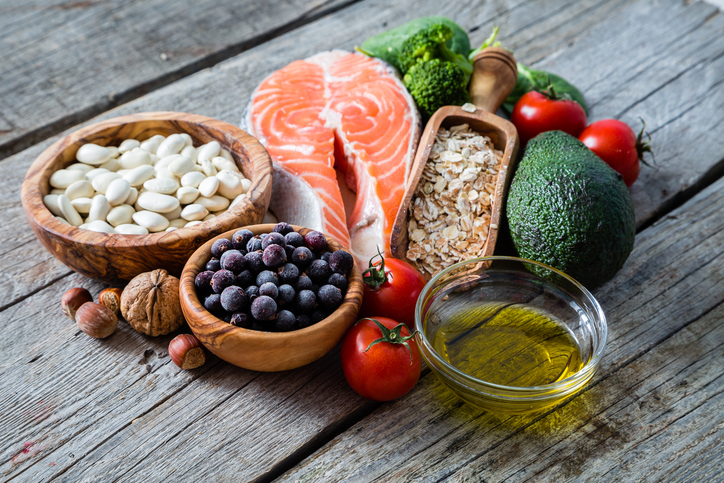Adding Fish for a Healthy Diet
It’s hard to beat fish and seafood for high protein and low fat. Fish has been shown in study after study to have a positive impact on health, and to lower the risk of heart disease and other diseases.
In addition, fish is delicious and easy to prepare. Many nutrition experts recommend eating fish at least once or twice every week. The most nutritious varieties of fish and those that contain the greatest amounts of heart protecting omega-3 fatty acids, tend to be those that live in cold ocean waters. These varieties of fish include salmon and sardines.
What Everyone Should Know About Eating Fish and the Benefits
Fish has long been thought to have a positive benefit on the heart. Research into the heart healthy effects of fish continues. No matter what the benefits, there is little doubt that fish is a healthy food, containing significant levels of protein and smaller amounts of fat and calories than other types of meat, not to mention the Omega-3. Fish promotes the enhancement of cognition and memory in people.

As a matter of fact, fish is one of the best sources of protein there is. Everyone needs protein for building muscles and repairing damaged body tissues. In addition, protein plays a vital role in the growth of nails and hair, in hormone production and in many other vital bodily processes. Fish, along with many other animal based products, such as meat, eggs, poultry and dairy products contain significant amounts of protein.
Plant based sources of protein exist as well; in nuts, beans and lentils, among others.
The key to getting sufficient protein in the diet is to balance the healthy effects of protein in a diet against the large amounts of fat and cholesterol that protein rich foods can often contain. The combination of high protein and low fat is one of the things that makes a diet rich in fish so appealing.
With the exception of salmon, almost all commonly eaten varieties of fish are very low in fat, and even salmon contains lower levels of fat than many varieties of meats. Fish is also low in saturated fat, the type of fat that is most associated with heart disease and clogged arteries.
Fish are low in unsaturated fat because of the nature of where and how they live. Instead of storing energy in the form of saturated fat as land animals do; fish store their fat in the form of polyunsaturated oils. That adaptation allows their bodies to function normally in the cool oceans and streams where they swim. It also makes them a great choice for anyone seeking to cut levels of saturated fat in the diet. For all these reasons, fish remains an important part of any low fat, heart healthy lifestyle.
Substituting high fat, greasy foods like hamburgers and ribs is a great way to make a change for a healthier diet.
One note about fish and pollution, however. It’s true that many fish caught in polluted waters contain high levels of mercury. While most commercially caught and grown fish are low in mercury, it’s important for fisherman to limit their consumption of locally caught fish. Pregnant women are also advised to limit their intake of fish, due to the potential harm to the baby.
To eliminate mercury from the body find a product that contains humifulvate which is a rare trace mineral. It contains natural and chemically distinct humic and fulvic acids which is harvested from unique, young, spring-fed peat found only in Hungary. They assist in heavy metal detoxification. The removal of heavy metals allow for increased absorption of nutrients and support of immune health.
Preparing Fish with a Busy Lifestyle
Many people avoid fish because they don’t know how to prepare and cook it. While it’s true that fish can present more of a challenge for the inexperienced, there are many recipes and cookbooks that make preparation easier.
In addition, many packaged seafood products contain cooking tips and serving suggestions that take some of the mystery out of preparing a nutritious and delicious meal of fresh fish.
Even those who don’t cook can enjoy the many benefits of fish in their diet. There are a number of canned seafood products on the market, including canned salmon, sardines and the ever popular tuna. There is no reason fish can’t fit into your healthy eating plan.
Since fish cooks rather quickly, it’s also an excellent choice for those times when you are a bit rushed to prepare a meal.
I hope this is everything you should know about eating fish to maintain a healthier diet.
If you received value from this post SHARE THE LOVE WITH YOUR FRIENDS
Choose more healthy lifestyle choices and become Sharper, Faster and Smarter. Click here

